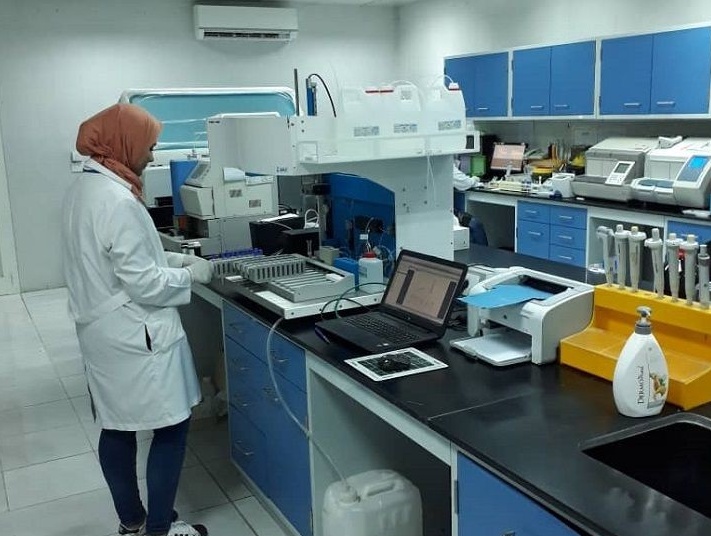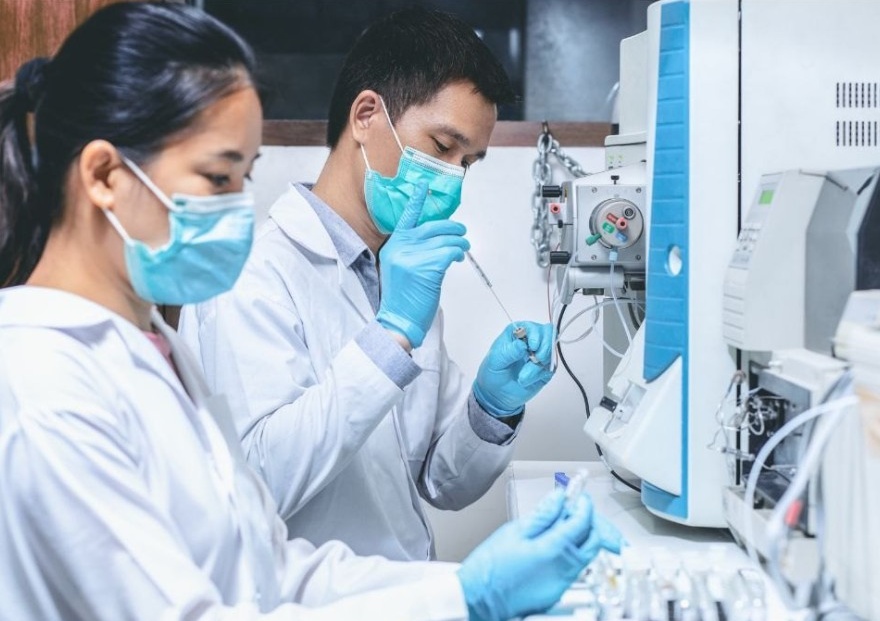- Have any questions? Call
- +91 9446 391 920
Article
Kerala Clinical Establishments (Registration & Regulation) Act, 2018
A PHP Error was encountered
Severity: Notice
Message: Undefined index: cover_img
Filename: articles/article_view.php
Line Number: 103
Backtrace:
File: /home/mloakera/public_html/views/pages/articles/article_view.php
Line: 103
Function: _error_handler
File: /home/mloakera/public_html/appl/controllers/Articles.php
Line: 159
Function: view
File: /home/mloakera/public_html/index.php
Line: 315
Function: require_once
Kerala Clinical Establishments (Registration & Regulation) Act, 2018
Introduction
Kerala, known for its strong healthcare outcomes, legislative activism, and public health initiatives, enacted the Kerala Clinical Establishments (Registration & Regulation) Act in 2018. The law is designed to ensure that all clinical establishments, public and private, meet minimum standard norms, are properly registered, operate transparently, and are accountable — for the sake of patient safety, quality of care, and better health governance.
Scope & Coverage
What is a “clinical establishment”?
It includes hospitals, clinics, nursing homes, maternity homes, sanatoriums, and other institutions that offer diagnosis, treatment, or care of illnesses under any recognised system of medicine (Modern Medicine, Dental, Ayurveda, Yoga & Naturopathy, Homoeopathy, Siddha, Unani). The scope explicitly includes diagnostic centres, laboratories, scanning centres, etc.
Who is covered?
All public and private clinical establishments, including those owned/provided by the government, private trusts, proprietorships, partnerships, corporations or local bodies. Exclusions include clinical establishments run by Armed Forces and “establishments offering only consultation services.”
Objectives of the Act
- Prescribe basic minimum standards for various categories of clinical establishments to ensure proper quality of healthcare. clinicalestablishments.kerala.gov.in+2Indian Kanoon+2
- Improve public health by ensuring that diagnostic and treatment services are safe, accessible, consistent and transparent. clinicalestablishments.kerala.gov.in+1
- Create a reliable database of all clinical establishments in the State for better policy making, regulation, monitoring and planning.
Key Provisions
1. Registration & Regulation
- All clinical establishments must be registered. There are two levels: provisional registration and permanent registration.
- Provisional registration is granted early (even without full inspection) to existing establishments; permanent registration is given only after notification of category-wise minimum standards and meeting them.
2. Minimum Standards
- Once permanent registration is framed, clinical establishments must fulfil certain minimum standards relevant to their category (e.g. size, staff qualifications, infection control, safety, infrastructure) to maintain service quality.
3. Authorities and Governance
- A State Council (or “Clinical Establishments Council”) is established to frame standards, monitor, classify, inspect, collect data etc.
- District Registration Authorities are constituted in each district to handle registration, renewal, suspension, cancellation of registration of clinical establishments.
4. Inspect, Assess & Enforce
- The Council may appoint panels of assessors to inspect establishments. Inspections (or assessments) help ensure compliance with minimum standards.
- Registration may be suspended or cancelled, especially if there is "imminent danger to public health or safety" or serious non-compliance.
5. Transparency, Data, and Public Accountability
- Establishments must display charges, services provided, “package rates”, and facilities in conspicuous form so patients know what to expect.
- Collection of data from these establishments is mandatory: the government can use them for public health planning, monitoring, outbreak response, etc.
6. Penalties & Consequences
- Penalties are prescribed for operating without registration, or non-compliance. Fines escalate with repeated violations.
- For serious violations, registration may be cancelled.
Implementation Milestones & Current Status
- The Act came into force in January 2019 for Modern Medicine, Dental, Laboratories, Diagnostic Centres.
- AYUSH systems (Ayurveda, Siddha, Unani, Homeopathy, Yoga & Naturopathy) came under its purview in June 2019.
- Permanent registration portals and the notification of minimum standards for different categories (Modern Medicine, Diagnostics, AYUSH etc.) have been progressively rolled out. For example, permanent registration for Modern Medicine Diagnostics, Laboratory etc. began around April 2023.
Importance for Diagnostic Centres
Since diagnostic centres are explicitly included in the scope:
- They must obtain registration (provisional / permanent) based on the category.
- Must meet the prescribed minimum standards for diagnostic services (in terms of infrastructure, staff qualifications, equipment maintenance, safety, hygiene etc.).
- Must publicly display information about the tests offered, charges, turnaround times, etc.
- Must be ready for inspection by assessors under the Act.
- They’ll be subject to penalties if they operate without registration or violate rules.
Legal and Constitutional Validity
- Challenges had been raised by private hospital associations and other stakeholders questioning aspects like fee disclosure, powers of the authorities, etc. But the Kerala High Court in 2025 upheld the constitutional validity of the Act. The Law Advice
- The Court held that the law is a valid exercise of the State’s powers with respect to public health and that the provisions are reasonable, aimed at improving health service standards.
Challenges & Issues in Implementation
While the Act is well-intentioned and has many strong features, there are several challenges:
- Delay in Rule-making: Some essential rules (e.g. for inspection schedules, grievance redressal) are delayed or not fully framed. The High Court has raised concerns.
- Compliance Gap: Some private clinical establishments are yet to register, even years after the Act came into force.
- Awareness and Enforcement: Smaller labs / diagnostic centers may be unaware or inadequately equipped to meet minimum standards. Enforcement by district authorities may be inconsistent.
- Resource Constraints: For some clinical establishments, especially in rural or small towns, meeting capital requirements (space, equipment, staffing) may be challenging.
Implications & Recommendations
For diagnostic centres and stakeholders, the following are important implications and steps for smoother compliance and improved quality:
1. Audit & Self-Assessment
Centres should undertake internal audits to see where they stand vis-à-vis minimum standards specified under Kerala Clinical Establishments Act.
2. Upgrade Infrastructure & Staffing
Ensure proper infrastructure (space, safety, infection control), requisite staff qualifications, and maintain equipment per norms.
3. Documentation & Transparency
Maintain records, display fee structure & test package rates, ensure patient information is provided, maintain logs of maintenance etc.
4. Engage with Authorities
Regularly interact with District Registration Authority / State Council, respond to inspections, keep registrations updated.
5. Training and Capacity Building
Train staff on compliance, patient rights, record keeping, hygiene, safety, and patient communication.
6. Advocacy / Policy Engagement
Stakeholders (diagnostic chains, lab owners, medical associations) should interface with government in policy making, for clarity on rules, reasonable standards, and phased implementation support.
Conclusion
The Kerala Clinical Establishments (Registration & Regulation) Act, 2018 is a landmark statute that seeks to bring transparency, quality, accountability, and standardisation across all clinical establishments — diagnostic centres included. While it sets out strong frameworks for registration, minimum standards, public accountability and regulation, its full potential will be realised only when implementation gaps are bridged, stakeholders cooperate, and enforcement becomes consistent.
Explore More Articles
Stay informed with latest trends, innovations, and best practices
Kerala Clinical Establishments (Registration & Regulation) Act, 2018
Kerala, known for its strong healthcare outcomes, legislative activism, and public health initiatives, enacted the Kerala Clinical Establishments (Registration & Regulation) Act in 2018.
Read More...
Improving Skill, Performance, and Quality of Staff in Diagnostic Centers
To ensure excellence, diagnostic centers must adopt clear standards and approaches that continually enhance the skill, performance, and professionalism of their workforce.
Read More...
The Need for Automation in Diagnostic Centers
The healthcare landscape is changing rapidly. In this context, automation is emerging as a vital necessity rather than a luxury.
Read More...
Standardization and Quality Control Systems for Diagnostic Centers in Kerala
To ensure reliability, centers in Kerala follow several standardization and quality control systems, many of which are aligned with national and international benchmarks.
Read More...